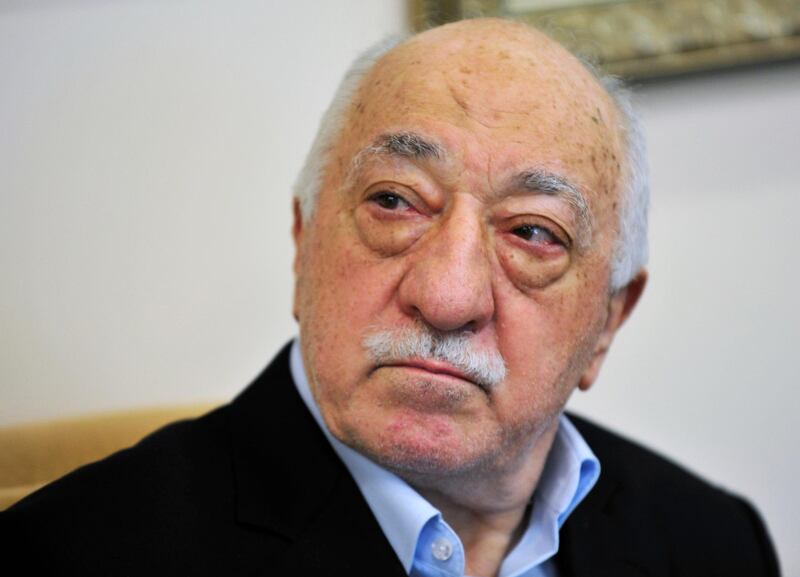The arrest of a Turkish-born restaurateur in Brazil has shown the extent Ankara is prepared to go as it hunts down members of a religious group it says was behind a failed coup in 2016.
Earlier this month, Brazilian authorities detained Ali Sipahi in Sao Paulo as he returned from a trip to the US. On Friday, a court will decide whether to return him to Turkey to face terrorism charges.
The 31-year-old, who has lived in Brazil since 2007, is alleged to be a member of what Ankara calls the Fethullahist Terrorist Organisation (FETO), so named after the group’s US-based leader Fethullah Gulen.
Since the attempted military coup in July 2016, which led to more than 250 deaths, dozens of suspected FETO members have been arrested overseas and returned to Turkey for trial.
In April last year, then Deputy Prime Minister Bekir Bozdag said Turkey’s intelligence agency had seized 80 suspects in 18 countries. Three months later, Foreign Minister Mevlut Cavusoglu said more than 100 Gulenists had been arrested abroad.
Critics and human rights groups say many of the detained have been unlawfully detained and extradited.
“The Turkish authorities continued to seek the extradition of alleged Gulen supporters, many of them teachers, from countries around the world,” Human Rights Watch said in its 2019 World Report.
“Without adhering to legal due process, security services in countries including Kosovo and Moldova cooperated with Turkish agents during the year to apprehend and transfer Turkish citizens to Turkey where they were detained and prosecuted.”
It was not clear whether Mr Sipahi was detained in response to an Interpol red notice, which is a request from one state to another to arrest an individual pending extradition. The Turkish foreign ministry and Brazilian embassy in Ankara have not responded to questions about the case.
The case of Mr Sipahi is the latest example of what Turkey has heralded as a quest for justice but what critics portray as a witch-hunt targeting anyone linked to Gulenist schools, businesses and associations often with little, if any, evidence of involvement in the coup attempt or terrorism.
“They cannot utilise the proper channels of extradition with other countries because they need hard evidence to back up very serious accusations that they don’t have,” said Abdullah Bozkurt, the former Ankara bureau chief for the Gulen-affiliated Today’s Zaman newspaper. He now lives in Sweden having fled Turkey days after the failed coup.
“I have looked at many indictments and I don’t see any evidence at all,” Mr Bozkurt said. “They use comments on Facebook or what school you send your kids to as proof but these are perfectly reasonable activities.”
The Gulenist movement, which gained influence through hundreds of schools, businesses and associations in Turkey and around the world, was once allied to President Recep Tayyip Erdogan’s government before differences led to Gulen followers in the police and judiciary targeting the president’s close circle in a 2013 corruption investigation.
The ensuing clampdown on Gulen supporters is widely held as the reason behind the coup attempt by Gulenist military officers who feared being purged.
In the months following the failed putsch, Turkey has jailed more than 77,000 people pending trial and mass arrests are still routine. Authorities have dismissed or suspended more than 150,000 public officials, including teachers and members of the military, while hundreds of companies, schools and media outlets have been seized or shut down.
The crackdown has spread across the world, to countries including Myanmar, Pakistan, Malaysia, Gabon, Sudan and even some European states. While some countries have resisted Ankara’s demands – a British court turned down an extradition request for business magnate Hamdi Akin Ipek and two others earlier this month on the grounds that it was “politically motivated” – others are more inclined to cave to Turkish pressure.
At least eight alleged Gulenists were arrested and deported from EU member Bulgaria in 2016, while the government in Sofia last year promised to investigate 14 organisations said to be tied to the group.
Suspects are sometimes returned to Turkey without going through any extradition process, as was the case with six men returned from Kosovo in March last year. In their case they were arrested and sent back to Turkey in an incident Kosovo’s media has called a “kidnapping”. A parliamentary committee in Pristina has now sent a file to prosecutors alleged criminal actions by the Kosovar intelligence service, police and civil aviation authority. Kosovo’s interior minister and intelligence chief have been dismissed for failing to inform the prime minister of the operation.
North Macedonia, which requires Turkish approval for its bid to join Nato, is currently considering an extradition request for 15 Turkish nationals. Defence Minister Radmila Shekerinska has warned that Nato membership may depend on agreeing to the request.
Turkey has submitted thousands of international arrest requests through Interpol’s system of “red notices” since the coup attempt – allegedly abusing the mechanism to chase down suspected Gulenists.
“If I was a foreign official I would not fulfil Turkey’s demands because there’s no trust abroad when it comes to FETO operations,” said a retired senior Turkish counter-terrorism police officer, who asked not to be named.
“With all the arrests in Turkey, they’re showing that there’s no space for the opposition here and FETO members can claim they’re being targeted because they’re part of the opposition.”







